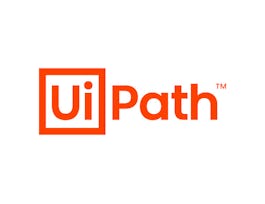This course will provide different techniques on the verification of autonomous systems against stability, regular, or omega-regular properties. Such techniques include Lyapunov theories, reachability analysis, barrier certificates, and model checking. Finally, it will introduce several techniques on designing controllers enforcing properties of interest over the original autonomous systems.



Verification and Synthesis of Autonomous Systems
Ce cours fait partie de Spécialisation Foundations of Autonomous Systems

Instructeur : Majid Zamani
Inclus avec 
Expérience recommandée
Ce que vous apprendrez
Analyze stability properties of linear systems
Compute over-approximations of reachable sets for some classes of systems
Perform model checking for finite systems
Synthesize controllers for safety and reachability specifications for finite systems using fixed-point algorithms
Compétences que vous acquerrez
- Catégorie : Model Checking
- Catégorie : Synthesis of Finite Abstractions
- Catégorie : Systems Relations
- Catégorie : Synthesis via Fixed-Points
Détails à connaître

Ajouter à votre profil LinkedIn
6 devoirs
Découvrez comment les employés des entreprises prestigieuses maîtrisent des compétences recherchées

Élaborez votre expertise du sujet
- Apprenez de nouveaux concepts auprès d'experts du secteur
- Acquérez une compréhension de base d'un sujet ou d'un outil
- Développez des compétences professionnelles avec des projets pratiques
- Obtenez un certificat professionnel partageable


Obtenez un certificat professionnel
Ajoutez cette qualification à votre profil LinkedIn ou à votre CV
Partagez-le sur les réseaux sociaux et dans votre évaluation de performance

Il y a 4 modules dans ce cours
Welcome to the beginning of our exploration into formal verification and synthesis within the model-based design framework. In this introductory module, we will guide you through the key processes of specification, design, verification, and refinement of systems. We will delve into the vital role of formal methods in guaranteeing the correctness of systems. Through captivating examples, we will demonstrate the importance of formal verification, especially in safety-critical and life-critical applications. This module lays the foundation for the more advanced topics we will address throughout the course.
Inclus
3 vidéos7 lectures
In this module, we focus on the verification of finite systems, particularly emphasizing regular safety properties and ω-regular properties (including those expressed as linear temporal logic formulae). We will explore a variety of verification techniques and delve into the theoretical underpinnings essential for understanding how finite systems are verified. Through detailed examples and clear, comprehensive explanations, we aim to provide a deep understanding of how these properties are verified in the context of finite systems.
Inclus
13 vidéos1 lecture2 devoirs
In this module, we explore the synthesis of controllers for finite systems, focusing on enforcing certain linear temporal logic (LTL) formulas, including safety, reachability, persistence, and recurrence. We aim to understand how controllers can be designed to render specific LTL formulas for closed-loop systems. The module provides essential theoretical frameworks and practical algorithms necessary for synthesizing such controllers, with an emphasis on the roles of fixed-point operators and algorithms in the computation processes. Additionally, we will discuss various synthesis techniques that depend on the properties of the system and the involved LTL formulas.
Inclus
12 vidéos1 lecture2 devoirs
In this module, we will explore the concepts of abstraction and refinement within the context of control systems. We will delve into feedback refinement relations to understand how controllers can be modified or replaced to meet new specifications without altering the overall system behavior. The module also covers the computation of abstractions, demonstrating how we derive abstract models from complex systems to facilitate analysis and design. Additionally, we will discuss practical methods for abstracting different types of control systems, equipping us with the skills to apply theoretical concepts in real-world scenarios.
Inclus
9 vidéos2 lectures2 devoirs
Instructeur

Offert par
Recommandé si vous êtes intéressé(e) par Software Development

Vanderbilt University

Google Cloud

Coursera Project Network
Préparer un diplôme
Ce site cours fait partie du (des) programme(s) diplômant(s) suivant(s) proposé(s) par University of Colorado Boulder. Si vous êtes admis et que vous vous inscrivez, les cours que vous avez suivis peuvent compter pour l'apprentissage de votre diplôme et vos progrès peuvent être transférés avec vous.¹
Pour quelles raisons les étudiants sur Coursera nous choisissent-ils pour leur carrière ?





Ouvrez de nouvelles portes avec Coursera Plus
Accès illimité à 10,000+ cours de niveau international, projets pratiques et programmes de certification prêts à l'emploi - tous inclus dans votre abonnement.
Faites progresser votre carrière avec un diplôme en ligne
Obtenez un diplôme auprès d’universités de renommée mondiale - 100 % en ligne
Rejoignez plus de 3 400 entreprises mondiales qui ont choisi Coursera pour les affaires
Améliorez les compétences de vos employés pour exceller dans l’économie numérique
Foire Aux Questions
Access to lectures and assignments depends on your type of enrollment. If you take a course in audit mode, you will be able to see most course materials for free. To access graded assignments and to earn a Certificate, you will need to purchase the Certificate experience, during or after your audit. If you don't see the audit option:
The course may not offer an audit option. You can try a Free Trial instead, or apply for Financial Aid.
The course may offer 'Full Course, No Certificate' instead. This option lets you see all course materials, submit required assessments, and get a final grade. This also means that you will not be able to purchase a Certificate experience.
When you enroll in the course, you get access to all of the courses in the Specialization, and you earn a certificate when you complete the work. Your electronic Certificate will be added to your Accomplishments page - from there, you can print your Certificate or add it to your LinkedIn profile. If you only want to read and view the course content, you can audit the course for free.
If you subscribed, you get a 7-day free trial during which you can cancel at no penalty. After that, we don’t give refunds, but you can cancel your subscription at any time. See our full refund policy.


